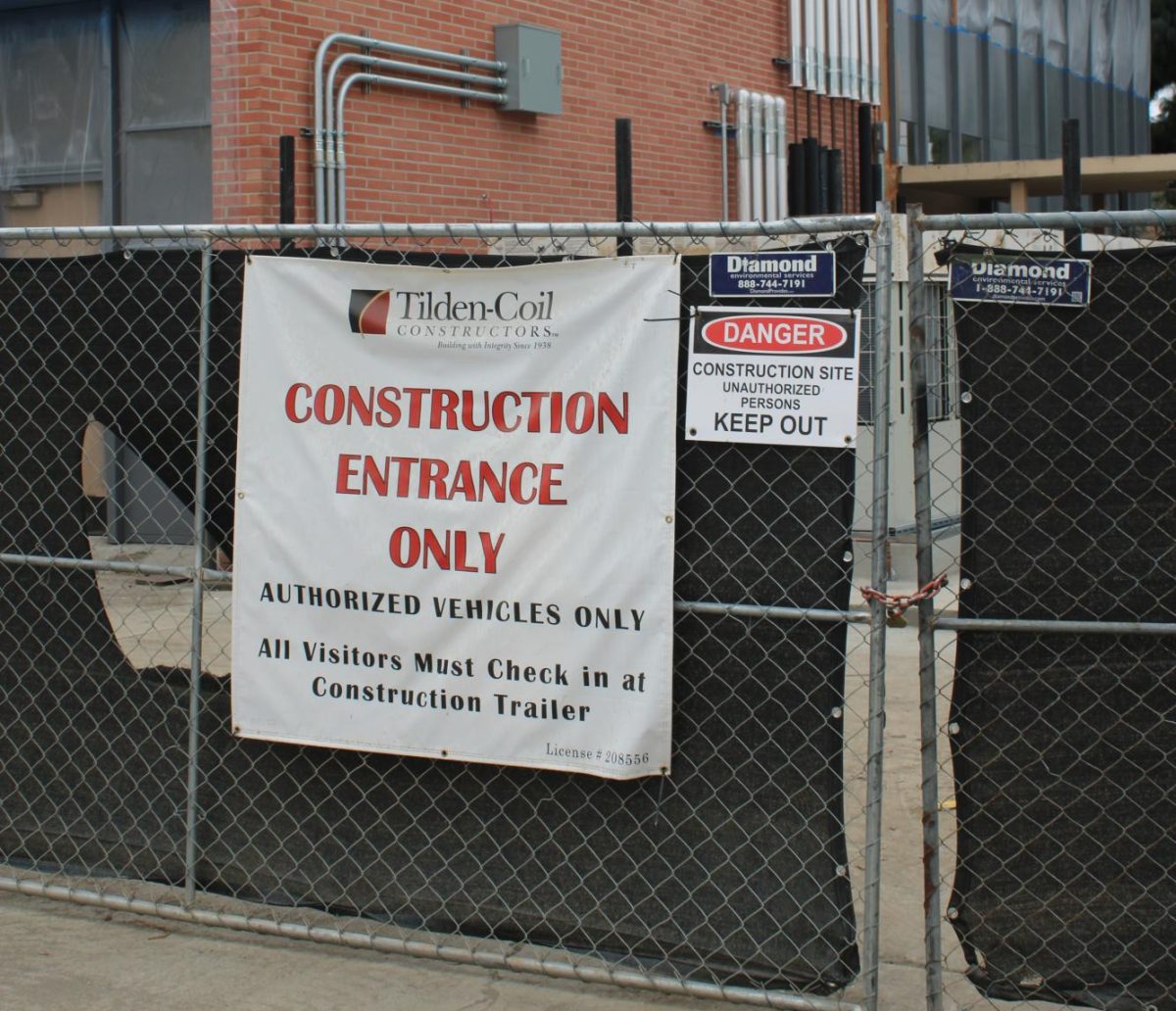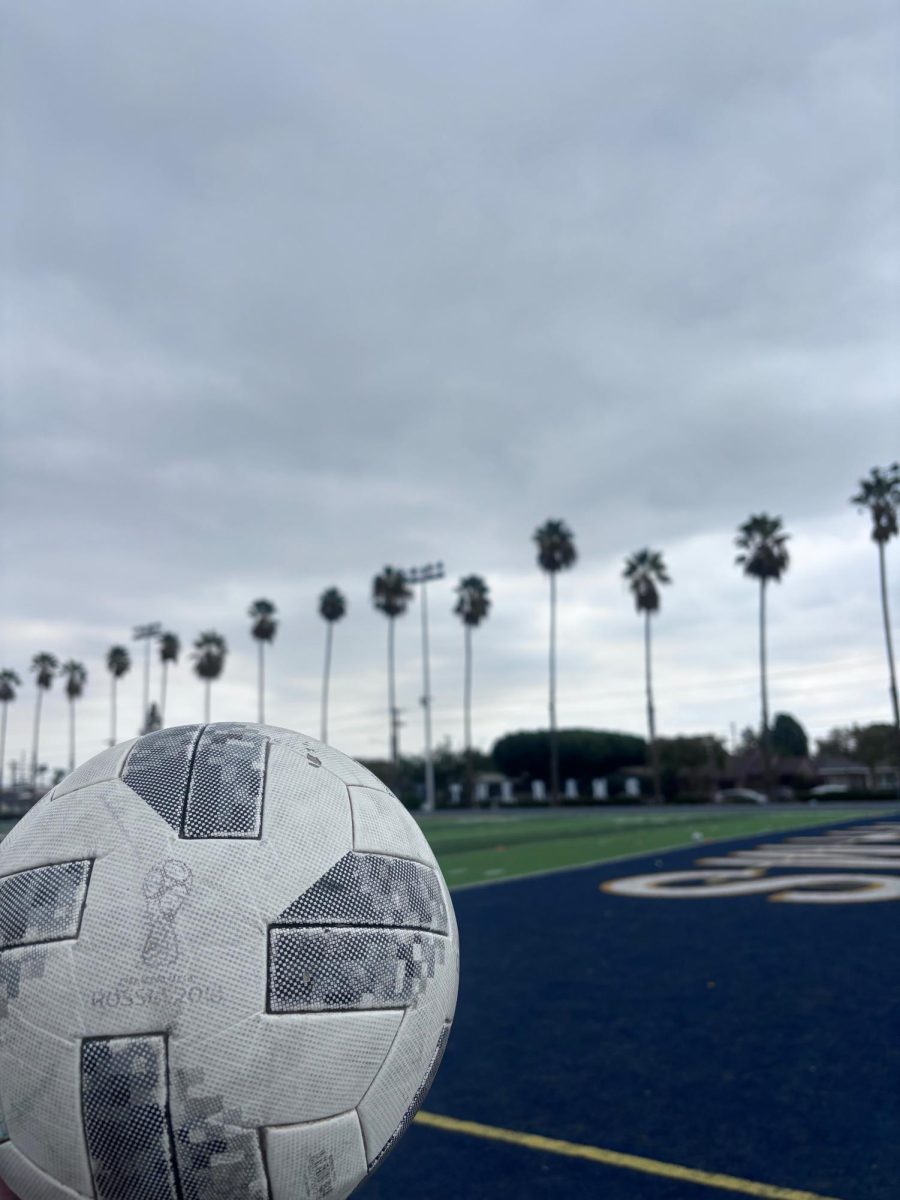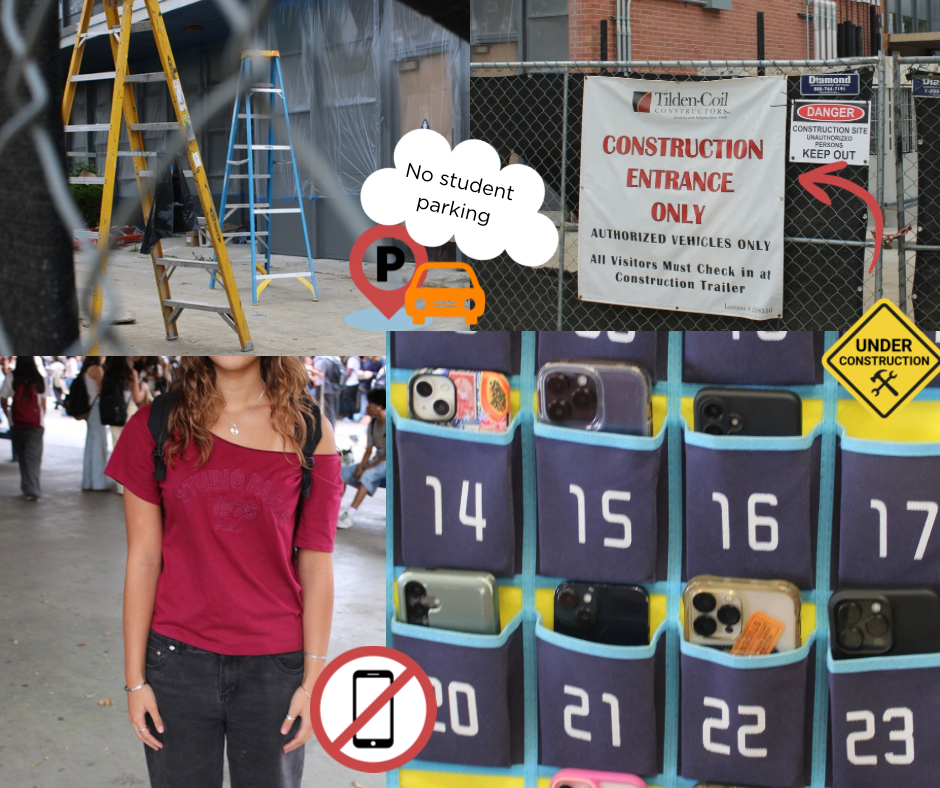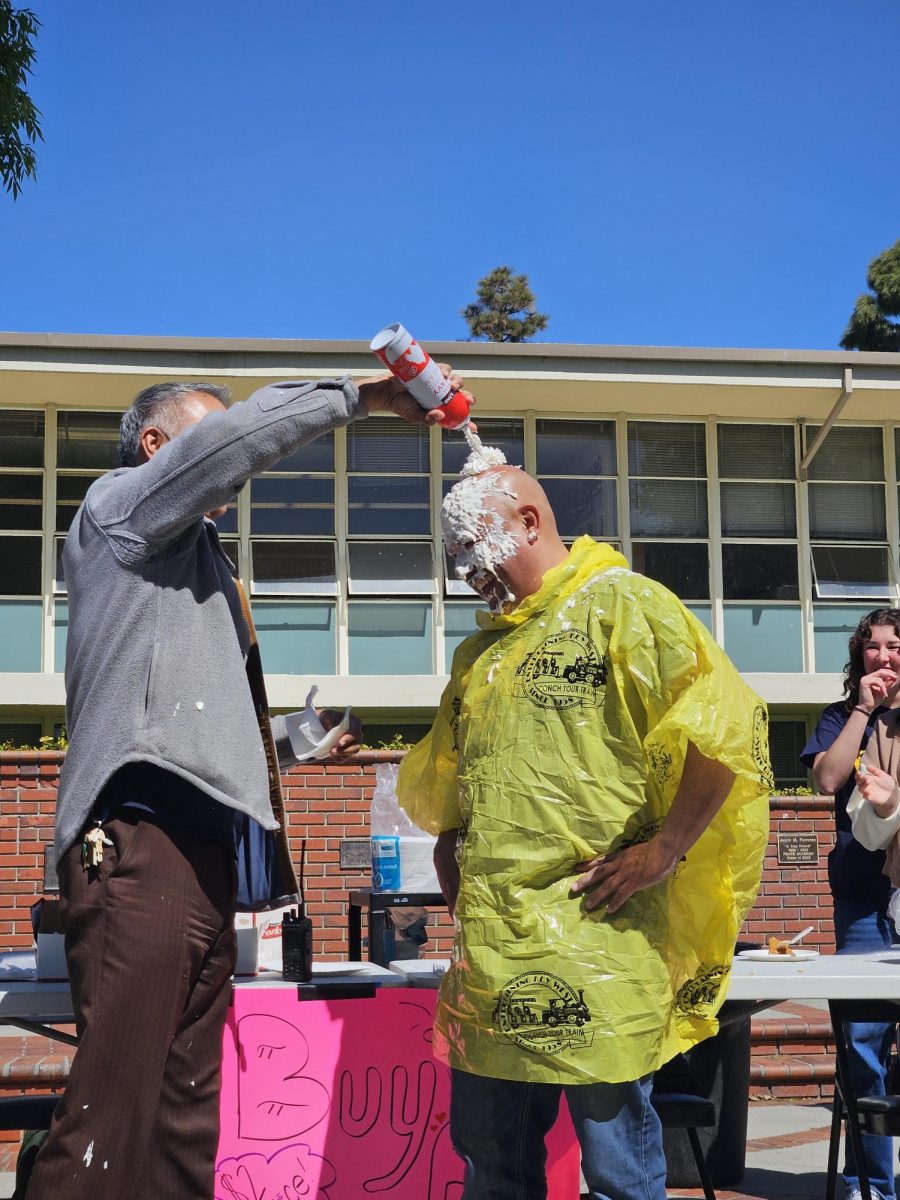The first thing to appear when looking up “senioritis” is Google’s dictionary definition: “A supposed affliction of students in their final year of high school or college, characterized by a decline in motivation or performance.” Senioritis is more than a “supposed affliction,” but a painfully real experience that can ruin a portion of senior year.
I believe that no one really understands how bad senioritis is until they’ve experienced it.
Max Tennis, COMPASS senior, stated, “Whenever I promise myself that I’ll do something, it just never gets done… Senioritis is making everything more annoying just to think about and do.”

Senior year is a slow crawl to graduation that is harder than you think. For many seniors, first semester entails college applications and second semester includes college admission decisions. All of this planning happens while you are still stuck in high school.
Even when writing this article, I battled the intense desire to just not. Senioritis is a visceral drive to be undriven. In senior year, you debate whether to complete assignments and the outlook that “nothing matters” wins the battle. You are then left with dropping grades and classes that feel like they go nowhere.
“As [seniors] apply to college, their brain starts to move away from high school,” states Mr. McWhorter, AP Macroeconomics and Human Geography teacher. “The college acceptance confirmation puts some people over the edge.”
Mrs. Cruz, PEACE teacher lead and capstone teacher, states, “One of the things that I’m getting concerned with is I used to see the heaviest impact of senioritis in May, and it has been getting earlier and earlier where I’ve seen students just checking out.”
Part of this may be attributed to the leeway of Millikan’s two week late assignment policy, as well as a drastic decline in motivation. Suddenly assignments do not feel real and it is difficult to find any reason to care.
This can hurt seniors since graduation requirements include passing certain classes. Admissions offers and scholarships can also be rescinded when performance dramatically declines.
Senioritis makes senior year painfully slow, but don’t give up. Look for senior activities to keep you engaged, and always keep in mind how graduation and potential academic careers are affected by this year.




























Mason Mundon • May 30, 2025 at 1:58 pm
Dear Allyson Richter
On May 30, 2025, Allyson Richter wrote an article called “Senioritis Sucks”. This article highlights the problems that the common experience of senioritis causes in the students, here at Millikan. Richter’s use of personal examples from interviews with staff and students from Millikan High School provides a great deal of insight of what senioritis is doing to the students. Not only the students, but also the teacher and the consequences of it. Furthermore, Richter’s use of listing examples of effects of senioritis is very informative of the phenomenon. Richter cleverly uses the new implementation system of the two week grading system and how it is making students less motivated to work. Along with her quotes from interviews, she uses an example of her own life and how senioritis had been affecting it, even during the creation of the article. She addresses senioritis as a serious issue with profound effects while providing solutions of how to suppress the feelings.
Madeline Palm • May 30, 2025 at 1:19 pm
The article describes how many seniors feel a lack of motivation, known as Senioritis. The article explains how Senioritis has made students’ senior year feel like a drag, as they look forward to graduation. Additionally, the article noted how Millikan’s new two-week late assignment policy has contributed to seniors’ feelings of laziness. I liked that the article included a senior’s perspective, Max Tennis, to help capture the feeling of Senioritis. Furthermore, the addition of a teacher’s perspective, Mr. McWhorter, explained why many seniors feel more lazy and unmotivated. Even as a junior, as the end of the school year nears I have gained a better understanding of what Senioritis feels like. With less happening at school it becomes easier to feel less motivated to do assignments and go to school. The article provides readers with an insight into what many seniors feel during their last year of high school.
Ketura Espinoza • May 30, 2025 at 1:14 pm
This article is meaningful because it mentions the struggles that seniors go through during their school year. Allyson Richter also adds her personal experience as well as another senior’s experience. This is important because it makes it known that Senioritis exists, and that students should expect it to happen in their senior year, so that it’s not a complete shock. I appreciate how Allyson gave the teacher’s opinions, and the teachers even noticed how seniors struggle with being motivated to do their school work while having to stay on top of everything that’s needed for college.
This article was extremely helpful as a warning as well as informing future seniors. This article will convince and reassure future senior students that it’s a normal thing many seniors experience in their senior year of high school.
Michael Diaz • May 30, 2025 at 1:13 pm
I enjoyed this article because it gives insight to many students, especially rising seniors, about what the term “Senioritis” means, a phrase that may be vaguely familiar to some. As someone who will enter their senior year in September, I’m glad that all other grades can read about a more in-depth explanation on how common it is to feel de-motivated in their final year of high school. I also appreciated the mention of Millikan’s new two-week late assignment policy regarding homework because of how much it allows for students to grow lazier and submit assignments later than someone may usually do, an especially relevant policy that has been debated on throughout the year. If I had to name one quote that stood out to me the most, it would have to be “Senioritis is a visceral drive to be undriven.” There’s a lot of emotional strength and persistence that must be accounted for when battling Senioritis, which is most important for students who would rather not have their admissions rescinded, also mentioned in the article. Overall, the article is a great summary of what tends to happen for those who have heard of the phenomenon before.
Sebastian Sachs • May 30, 2025 at 1:05 pm
As a Junior attending MHS, it’s possible that, by next year, I’ll also be experiencing this feeling even as school starts once again. Though, the end of high school usually marks the end of a large amount of academic or emotional suffering for students, to put it bluntly. This opinion piece encapsulates very clearly just what most Seniors go through during the times where they only want Summer to arrive even faster.
Something I’d also like to point out is that many people will also start feeling the effects of Senioritis once their Senior year begins, with those feeling like they will breeze through the year with perfect grades after their rigorous Junior year. Most don’t focus a lot more in class, and they believe that the worst is now past them, with the academic challenges of their Junior years done with. There is still underlying challenge behind students’ Senior year, and most, if not all, of it comes from filling out applications and submitting them in time. College is another step in students’ academic life, but the strictest part of their school lives has now been completed once they finish their last year of high school.
Kirshtein Bustillo • May 30, 2025 at 1:04 pm
On May 27, 2025, Allyson Richter wrote an article titled “Senioritis Sucks”. This article emphasizes an issue that many seniors struggle with, especially during their last few months of high school. Richter does an excellent job when defining what the term “Senioritis” means and how it could harm many of the students’ futures regarding graduating and college. Additionally, she includes quotes from different teachers which highlights how this feeling is contagious and is visible through an outside point of view.
I think that this article is helpful in bringing awareness, especially to younger students, as to what they may go through during senior year. I also like the images included in the article since they visually show what “Senioritis” may look like. Moreover, the quotes from different teachers demonstrate how this feeling can be felt through all pathways and classes, showing how it is a universal feeling rather than specific to a number of students. One piece of advice that I would give is to include quotes from senior students since this can give a more personal point of view on what it feels like to experience “Senioritis.”
Colin Virtue • May 29, 2025 at 1:31 pm
Dear Corydon Editor,
On May 27, 2025, Allyson Richter wrote an article titled, “Senioritis Sucks”. This article does an excellent job of sharing with the audience all of what goes on for senior students who suffer from senioritis. Allyson starts by defining Google for the reference Senioritis. She writes, “A supposed affliction of students in their final year of high school or college, characterized by a decline in motivation or performance.” This is very strategic because it allows her audience to have a better understanding of the overall topic being discussed. This article also did a fantastic job of using specific examples of senior students and their perspectives on senioritis. An example of this is when she interviewed Max Tennis, a senior at Compass. During the interview, Max went on to say, “Whenever I promise myself that I’ll do something, it just never gets done…. Senioritis is making everything more annoying just to do or think about and do.” This specific example helps her audience understand the specific mindset students experiencing senioritis have. Another great example that Allyson uses, is from her interview with Mr. McWhorter. Mr. McWhorter shared “As Seniors apply to college, their brains start to move away from high school.” This is a very beneficial perspective because it allows her audience to understand the perspective that teachers at Millikan High School have. Overall Allyson did a fantastic job at explaining to her audience what senirotis and its impact on students, and she accomplished this through using definitions, and specific examples.
Sincerely,
Colin Virtue
Melanie Castorena • May 29, 2025 at 1:20 pm
On May 27, 2025, Allyson Richter wrote an article titled “Senoritis Sucks”. This article highlights the struggles seniors are facing as they are coming towards the end of their last year. Richter goes into detail about what senioritis is and how people don’t realize the true impact of it until they are really being affected by it. The author brings light to the real life effects by using quotes from teachers such as Max Tennis, a COMPASS senior, and Mr. McWhorter and Mrs.Cruz. By using the quote of, “Whenever I promise myself that I’ll do something, it just never gets done…”. This shows a first person view of how senioritis is impacting the students here at Millikan and what one may expect coming to the end of senior year.
My favorite feature of Richter’s article is how they included quotes from the teachers, to show how the actions of the students are reflected to others. I think that by adding this she is allowing the audience to see how the senioritis is sort of contagious and how the teachers are noticing it more and more as the years go on. I also like how the author includes photos in the article to represent the feelings of senioritis. Overall, I think this was a well written article that accurately represented the effects of senioritis.
Olivia Zamora • May 29, 2025 at 1:12 pm
One thing that I enjoyed from the article was the decision to state the definition of Senioritis in the article, just in case the reader isn’t aware of the definition. Additionally, since the author utilized teachers that typically teach seniors for their interviews, it states as an ethical appeal since they have more experience with seniors behavior. Furthermore, the author’s own insight into the issue helps the point get more across to the reader, because the author is able to voice their own personal opinions of what it is like to have senioritis. Moreover, the background information of the new week late policy and its potential impact on senioritis helps the reader think more deeply of where senioritis might stem from.
One piece of advice I would give to the author is to interview teachers that teach seniors from a broad range of pathways. This way, the reader can have more insight to not only how students are affected, but also how they might react no matter what pathway they are in. Additionally, the author could interview teachers that teaches freshman, in order to get a better understanding of the motivation of students coming into high school, in contrast to them about to leave high school.
Charlotte Fields • May 29, 2025 at 1:04 pm
As the author reflects on their own personal experience as a senior, they analyze the specific effects and reasons of the short yet meaningful phase in senior year. As a junior, reading this article can make many juniors afraid, and want to plan ahead before experiencing the worst of these emotions. Likewise, including a section in the article which gives tips on weakening the issue can make the article more intriguing than it already is.
A section of the article briefly mentions that seniors from this year were entering the phase earlier in the year. As the issue becomes more prominent, it would be great to hear more on the reason why it is happening much earlier than expected. The author leaves the article with a strong statement directly to the target audience, seniors, which accurately leaves the audience with some optimism over the situation.
Addie Melena • May 29, 2025 at 9:29 am
May 29, 2025
Dear Corydon Editor,
On May 27, 2025, Allyson Ritcher wrote an article called “Senioritis Sucks”. This article explains the phenomenon of “senioritis” and the effect it is having on students at millikin. According to Ritcher, senioritis is a very real experience that is described as a decline in motivation to complete their work. This is often due to the fact that senior year consists of college applications first semester and college admission decisions second semester. Students feel that their grades in highschool no longer matter, which is a false perception.
I like that Ritcher includes the perspective of both teachers and students to show that senioritis is impacting everyone. Teachers specifically have noted that this issue is only growing through the years. According to PEACE teacher, Mr. Cruz, “it’s been getting earlier and earlier where I’ve seen students just checking out.” After reading this article, it makes me more aware of my own academic changes towards the end of the year. Even though I am a junior I definitely get less motivated towards the end of the year because I want it to be a break. Ritcher’s article was very informative as she provided insight on the effects of senioritis which include harm to their graduation requirements and colleges may rescind offers of admission.
Raquel Martin • May 29, 2025 at 9:14 am
Dear Corydon Editor,
On May 27, 2025, Allyson Richter wrote an article titled “Senioritis Sucks”. This article gives information about senioritis and the impacts that it has on students at Millikan. She used different quotes from trusted sources that share an opinion on senioritis and why they think it happens. She also does a great job explaining why senioritis seems to be getting worse and makes a good point about the 2 week late work policy. Ritcher describes senior year as a slow crawl to graduation and that the 2 semesters are split into college applications and college admissions.
She also does an excellent job at talking about the negative impacts of senioritis and that it is worse than people think. She brings up the points that you need to pass certain classes to graduate and some colleges will take away admissions or scholarships because your grades declined. The explanation for this is that seniors spend so much of their time worrying about college while they are still in high school so once they have to do stuff for high school they are ready to move on.
Sincerely,
Raquel Martin
Cali • May 27, 2025 at 1:56 pm
A great story on a very real and painful issue that causes seniors everywhere to feel the weight of senior year. Very well done and I wish there were more services available to seniors to get help when dealing with this issue.